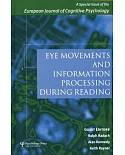Get the AP college credits you've worked so hard for... Our savvy test experts show you the way to master the test and score higher. Our all-new and fully expanded 7th edition test prep
examines all AP Psychology topics including in-depth coverage of sensation and perception, personality, abnormal psychology and psychological disorders. The comprehensive review covers every
possible exam topic: biological bases of behavior, cognition, learning, developmental psychology and more. Features 3 full-length practice exams with all answers thoroughly explained.
Follow up your study with REA's test-taking strategies, powerhouse drills and study schedule that get you ready for test day.
DETAILS
- Comprehensive, up-to-date subject review of every AP Psychology topic used in the AP exam
- Study schedule tailored to your needs
- Packed with proven key exam tips, insights and advice
- 3 full-length practice exams. All exam answers are fully detailed with easy-to-follow, easy-to-grasp explanations.
TABLE OF CONTENTS
About the Editors
About Research & Education Association
Passing the AP Psychology Exam
About the Book
About the Test
About the Review Sections
Scoring the Exam
AP Psychology Study Schedule
Subject Review for AP Psychology Exam
Chapter 1: INTRODUCTION TO PSYCHOLOGY
What is Psychology?
History of Psychology
Major Schools of Thought
Methods of Study
Ethics in Psychological Research
Statistical Methods
Careers in Psychology
Review Questions
Chapter 2: BIOLOGICAL BASES OF BEHAVIOR
The Brain
The Nervous System
The Endocrine System
Genetics
Review Questions
Chapter 3: SENSATION AND PERCEPTION
Definitions
Thresholds, Signal Detection & Sensory Adaptation
Depth Perception
Vision
Hearing
Other Senses - Touch, Taste, Smell
Sensory Deprivation
Review Questions
Chapter 4: COGNITION
Memory
Thinking
Language
Review Questions
Chapter 5: STATES OF CONSCIOUSNESS
Definitions
Sleep and Dreaming
Dreams
Hypnosis
Meditation
Psychoactive Drugs and Their Effects
Review Questions
Chapter 6: LEARNING
Classical Conditioning
Operant Conditioning
Behavior Modification
Schedules of Reinforcement: Controlling Behavior
Observational Learning
Review Questions
Chapter 7: TESTING AND INDIVIDUAL DIFFERENCES
The Nature of Intelligence
Two Theories of Intelligence
Heredity vs. Environment
Measuring Intelligence
Extremes of Intelligence
Review Questions
Chapter 8: MOTIVATION AND EMOTION
Motivation
Emotion
Review Questions
Chapter 9: DEVELOPMENTAL PSYCHOLOGY
Theories of Development
Infancy and Childhood
Adolescence
Adulthood
Sex Roles and Sex Differences
Review Questions
Chapter 10: PERSONALITY
Theories and Approaches
Assessment
Review Questions
Chapter 11: SOCIAL PSYCHOLOGY
Social Cognition
Conformity and Obedience
Group Dynamics
Aggression
Organizational Psychology
Review Questions
Chapter 12: ABNORMAL PSYCHOLOGY
Abnormal Behavior: Definitions
History of Abnormal Psychology
Models of Abnormal Behavior
Types of Disorders
DSM-IV-TR
Review Questions
Chapter 13: TREATMENT OF PSYCHOLOGICAL DISORDERS
Therapeutic Approaches
Forms of Therapy
The Effectiveness of Psychotherapies
Review Questions
Practice Tests
AP Psychology Practice Test 1
Answer Key
Detailed Explanations of Answers
AP Psychology Practice Test 2
Answer Key
Detailed Explanations of Answers
AP Psychology Practice Test 3
Answer Key
Detailed Explanations of Answers
Answer SSheets
Glossary
Index
EXCERPT
About Research & Education Association
Research & Education Association (REA) is an organization of educators, scientists, and engineers specializing in various academic fields. Founded in 1959 with the purpose of
disseminating the most recently developed scientific information to groups in industry, government, high schools, and universities, REA has since become a successful and highly respected
publisher of study aids, test preps, handbooks, and reference works.
REA's Test Preparation series includes study guides for all academic levels in almost all disciplines. Research & Education Association publishes test preps for students who have not yet
completed high school, as well as high school students preparing to enter college. Students from countries around the world seeking to attend college in the United States will find the
assistance they need in REA's publications. For college students seeking advanced degrees, REA publishes test preps for many major graduate school admission examinations in a wide variety of
disciplines, including engineering, law, and medicine. Students at every level, in every field, with every ambition can find what they are looking for among REA's publications.
While most test preparation books present practice tests that bear little resemblance to the actual exams, REA's series presents tests that accurately depict the official exams in both degree
of difficulty and types of questions. REA's practice tests are always based upon the most recently administered exams, and include every type of question that can be expected on the actual
exams.
REA's publications and educational materials are highly regarded and continually receive an unprecedented amount of praise from professionals, instructors, librarians, parents, and students.
Our authors are as diverse as the fields represented in the books we publish. They are well-known in their respective disciplines and serve on the faculties of prestigious high schools,
colleges, and universities throughout the United States and Canada.
PASSING THE AP PSYCHOLOGY EXAM ABOUT THE BOOK
This book provides an accurate and complete representation of the Advanced Placement Psychology Examination. REA's comprehensive review and three full-length practice exams are based on the
AP psychology curriculum and test content and format. Each of our practice exams is designed within the official timeframe of a two-hour administration and includes every type of question
that you can expect to encounter on the actual exam.
Following each of our practice exams is an answer key complete with detailed explanations designed to clarify and contextualize the material for you.
By studying the review section, completing all three practice exams, and studying our step-by-step explanations, you'll pinpoint your strengths and weaknesses and put yourself in a position
to master the AP Psychology Examination.
ABOUT THE TEST
The Advanced Placement program is designed to allow high school students to pursue college-level studies while attending high school. The exam is offered to high school students who have
completed a year of study in a college-level psychology course. The results are used for determining course credit and/or placement in college.
The Advanced Placement Psychology course is designed to cover college-level psychology studies. Students are expected to leave the course with a college-level understanding of various
approaches to psychology, types of research in psychology, the facets of human behavior and cognition, and the treatment of various mental disorders. This course is intended for highly
motivated students with an interest in psychology.
The exam is presented in two distinct parts:
Multiple-choice section (two-thirds of exam grade):
This section is composed of 100 multiple-choice questions designed to measure the student's knowledge of psychology. The questions cover a wide variety of topics studied in the course. You'll
have 70 minutes to complete this section of the exam, which counts for two-thirds of your final grade.
Free-response section (one-third of exam grade):
This section is composed of two essay questions designed to measure the student's analytical, organizational, and writing skills, as well as his or her background in psychology. You'll have
50 minutes to complete this section, which counts for one-third of your final grade.
ABOUT THE REVIEW SECTIONS
This book provides a comprehensive review of psychology which, when used in conjunction with a reliable textbook, will help you target the very topics you're most likely to see on the AP
exam. The review covers these topics in depth:
1. Introduction to Psychology - includes: history, approaches, research methods, and careers in psychology
2. Biological Bases of Behavior - includes: studies of the brain, the nervous system, the endocrine system, genetics, and nature vs. nurture
3. Sensation and Perception - includes: descriptions of the five senses, thresholds, sensory adaptation, and sensory deprivation
4. Cognition - includes: studies of memory, thinking, and language
5. States of Consciousness - includes: sleep and dreaming, hypnosis, meditation, and psychoactive drugs
6. Learning - includes: examples of classical and operant conditioning
7. Intelligence - includes: the heredity vs. environment argument and measure of intelligence
8. Motivation and Emotion - includes: drives and instincts, incentives, social learning, arousal, romantic love, and stress
9. Developmental Psychology - includes: infancy and childhood through adolescence, to adulthood and later life, and sex roles and differences
10. Personality - includes: psychoanalytic theory, trait theory, humanistic approaches, behavioral theories, biological studies, and personality assessments
11. Social Psychology - includes: studies on conformity, compliance and obedience, group dynamics, aggression, and organizational behavior
12. Abnormal Psychology - includes: history and definition, types of disorders and an introduction to the American Psychiatric Association's Diagnostic and Statistical Manual of Mental
Disorders (DSM)
13. Treatment of Psychological Disorders - includes: psychodynamics, behavioral, cognitive, biological, and humanistic approaches and types of therapy
SCORING THE EXAM
The multiple-choice section of the exam is scored by crediting each correct answer with one point and deducting one-fourth of a point for each incorrect answer. Unanswered questions receive
neither a credit nor a deduction.
The free-response essays are evaluated by psychology instructors and professors. The two essays are weighted equally and the total weight of the free-response section accounts for one-third
of the total score. The multiple-choice section constitutes two-thirds of the total score.
Your score on the multiple-choice section and your grade on the free-response section are combined and converted to the program's five-point scale:
5-extremely well-qualified
4-well-qualified
3-qualified
2-possibly qualified
1-no recommendation
Colleges participating in the Advanced Placement Program usually recognize grades of 3 or higher.
Rule of Thumb: Examinees who perform acceptably on the free-response section of the test generally need to answer correctly between 50 and 60 percent of the multiple-choice
questions to get a total grade of 3.





















